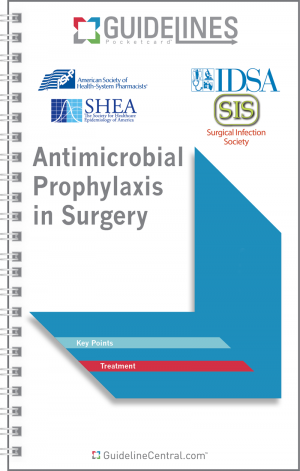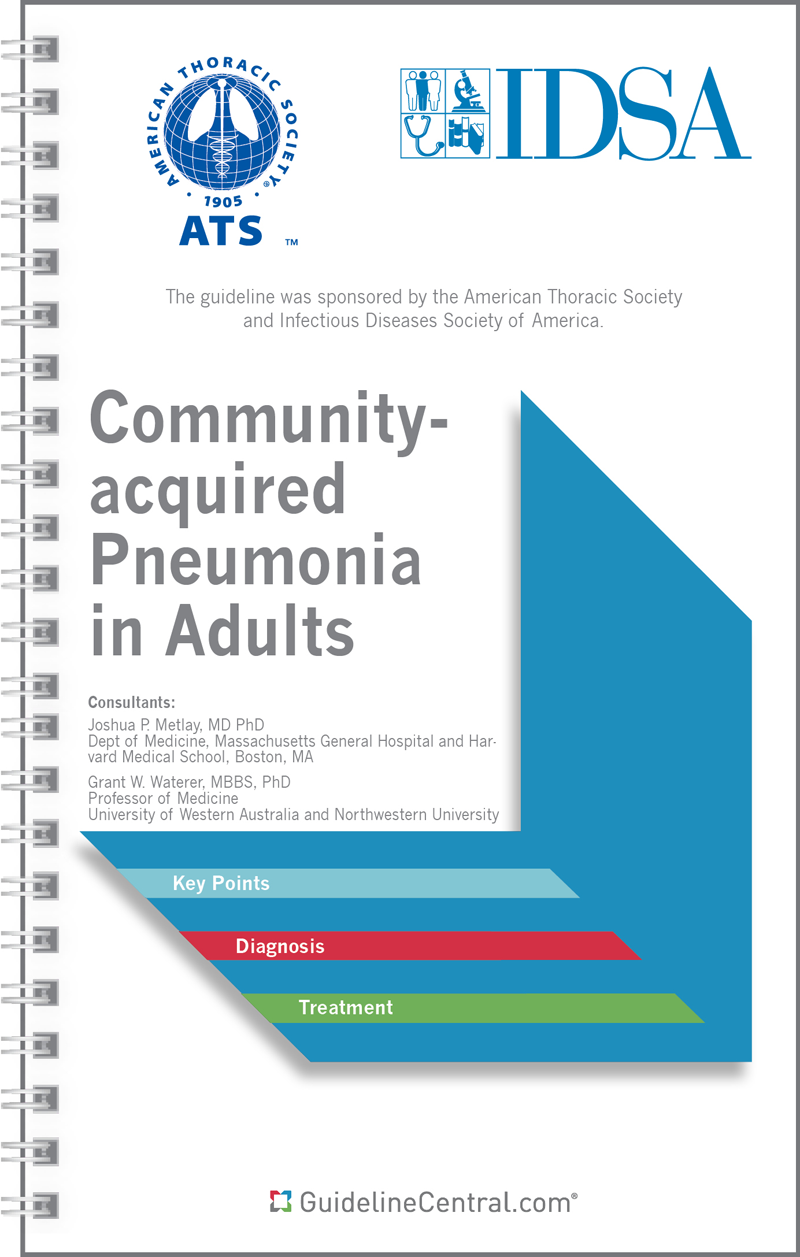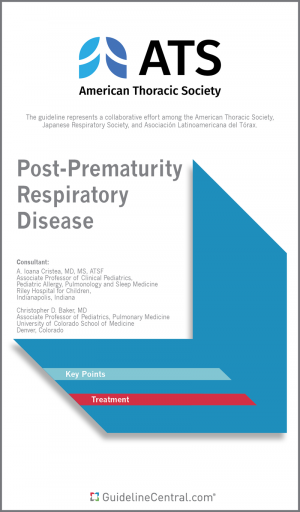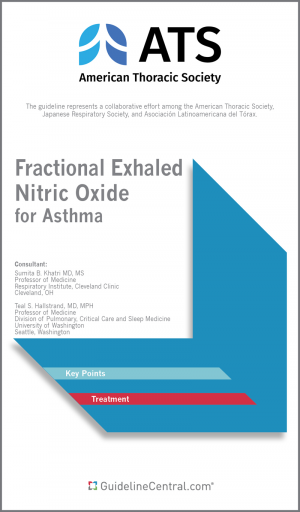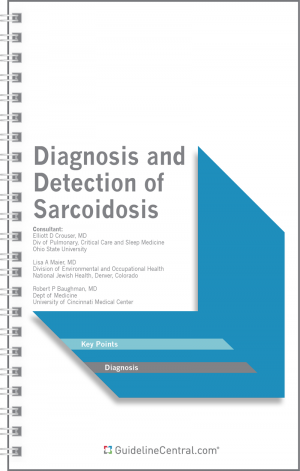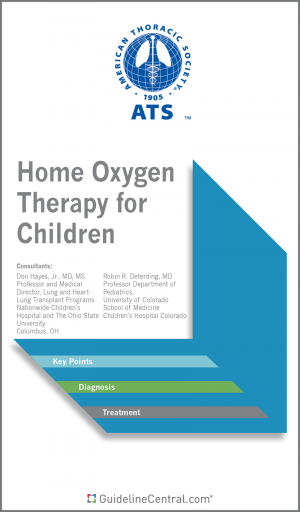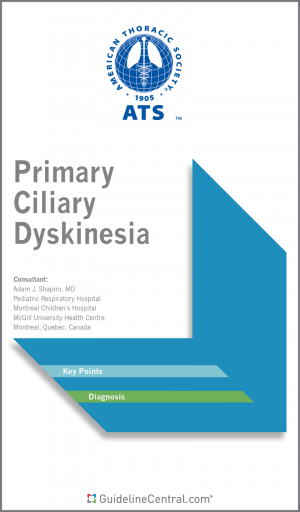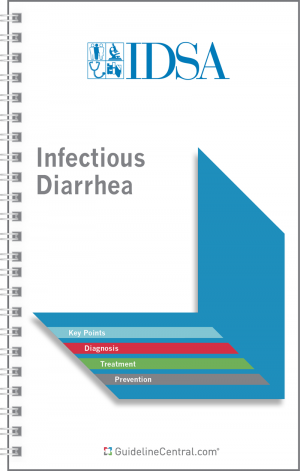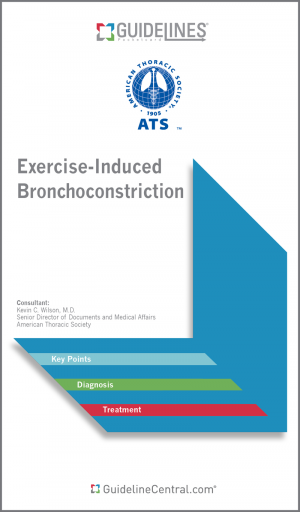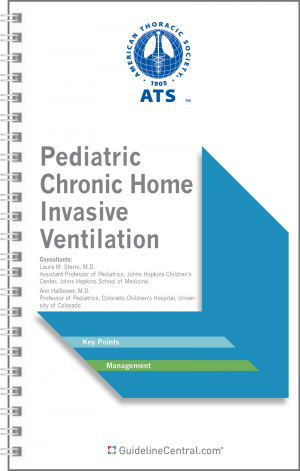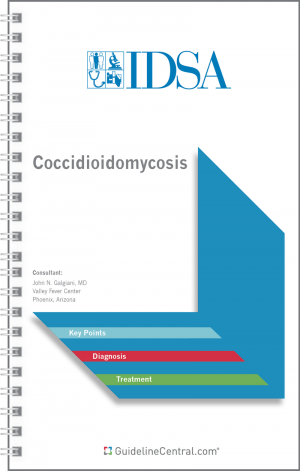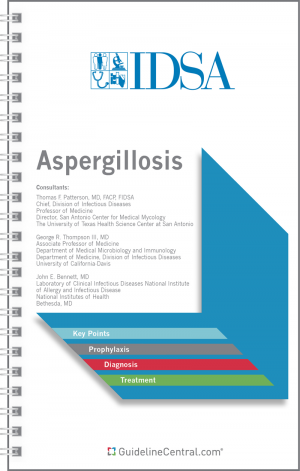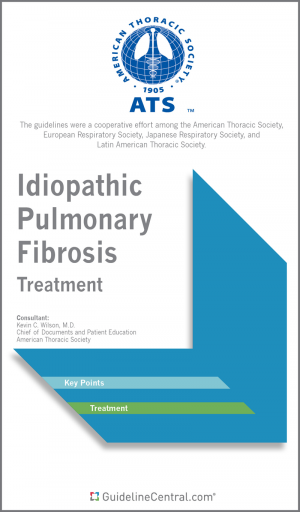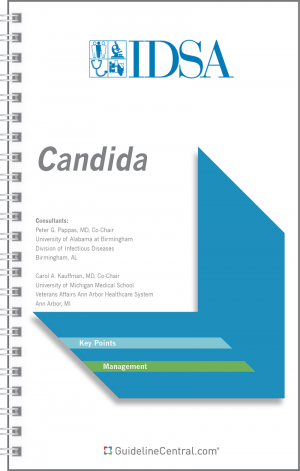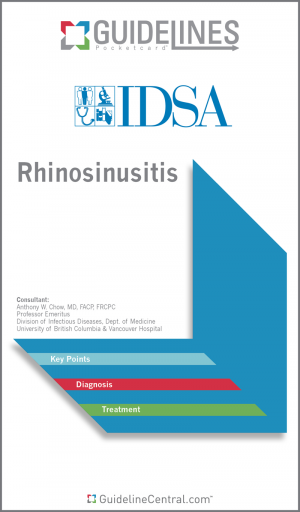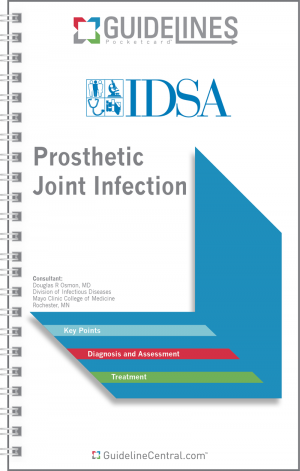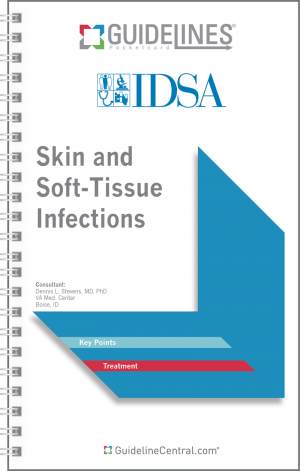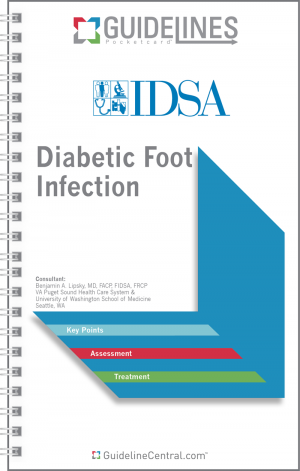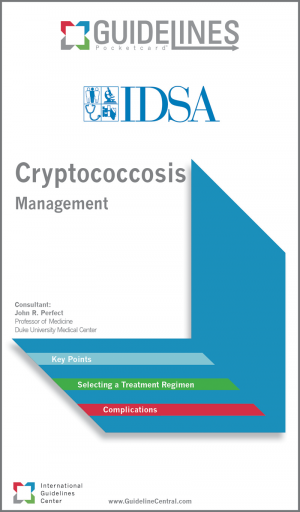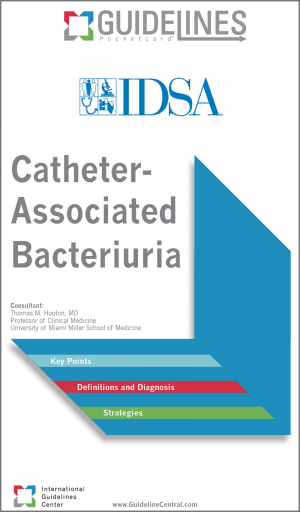Diagnosis and Treatment of Adults with Community-Acquired Pneumonia
- 12 pages
- Spiral Bound
- 80# Aqueous Coating
- 4.25" x 7.25"
- Ships in 5 – 10 business days
- Key Points
- Diagnosis
- Gram Stain
- Blood Cultures
- Urinary Antigens
- Respiratory Sampling
- Treatment
- Procalcitonin
- Inpatient Versus Outpatient
- Treatment Intensity
- Empiric Antibiotics – Outpatient
- Empiric Antibiotics – Inpatient
- Suspected Aspiration
- Extended-spectrum Antibiotics
- Steroids
- Antivirals
- Antibiotics for Test-Positive Influenza
- Treatment Duration
- Follow-up X-ray
- Tables
- 2007 IDSA/ATS Criteria for Defining Severe CAP
- Initial Treatment Strategies for Outpatients with Community-acquired Pneumonia
- Initial Treatment Strategies for Inpatients with CAP by Level of Severity and Risk for Drug Resistance
- For purchases under 100 in quantity, we suggest placing the order directly through the website.
- We offer group/institutional licenses for multi-user accounts (discount amount varies depending on the number of users).
- We are proud to offer special discounts to medical schools, training programs, students and more.
- We offer bulk purchase discounts based on number of copies and number of titles.
Contact Us for more details
The Infectious Diseases Society of America (IDSA) represents physicians, scientists and other health care professionals who specialize in infectious diseases. IDSA's purpose is to improve the health of individuals, communities, and society by promoting excellence in patient care, education, research, public health, and prevention relating to infectious diseases.
Description
This resource is for informational purposes only, intended as a quick-reference tool based on the cited source guideline(s), and should not be used as a substitute for the independent professional judgment of healthcare providers. Practice guidelines are unable to account for every individual variation among patients or take the place of clinician judgment, and the ultimate decision concerning the propriety of any course of conduct must be made by healthcare providers after consideration of each individual patient situation. Guideline Central does not endorse any specific guideline(s) or guideline recommendations and has not independently verified the accuracy hereof. Any use of this resource or any other Guideline Central resources is strictly voluntary.
You can also find this product included in these bundles!
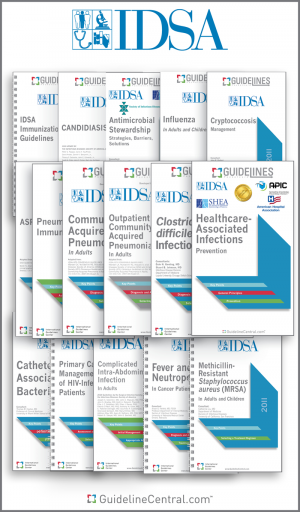
- Acute Hematogenous Osteomyelitis
- Antibiotic Stewardship
- Antimicrobial Prophylaxis for Adult Patients With Cancer-Related Immunosuppression
- Antimicrobial Prophylaxis in Surgery
- Aspergillosis
- Asymptomatic Bacteriuria Management
- Candida
- Catheter-Associated Bacteriuria
- Chronic Kidney Disease in HIV-Infected Patients
- Chronic Pain in HIV
- Clostridium difficile
- Coccidioidomycosis
- Complicated Intra-abdominal Infection in Adults
- Complicated Intra-abdominal Infections
- Cryptococcosis Management
- Diabetic Foot Infections
- Diagnosis and Treatment of Adults with Community-Acquired Pneumonia
- Drug-Susceptible Tuberculosis
- Fever and Neutropenia in Cancer Patients
- Guideline on Diagnosis and Management of Babesiosis
- Hospital-acquired and Ventilator-Associated Pneumonia
- Implementing Strategies to Prevent Infections in Acute Care Settings
- Infectious Diarrhea
- Influenza Update for the 2020 - 2021 Flu Season
- Leishmaniasis
- Management of Outpatient Parenteral Antimicrobial Therapy
- Methicillin-Resistant Staphylococcus aureus (MRSA)
- Native Vertebral Osteomyelitis in Adults
- Neurocysticercosis
- Outpatient Management of Fever and Neutropenia in Adults Treated for Malignancy
- Pediatric Community-Acquired Pneumonia
- Prevention of Ventilator-Associated Pneumonia, Ventilator-Associated Events, and Nonventilator Hospital-Acquired Pneumonia in Acute Care Hospitals
- Prevention, Diagnosis and Treatment of Lyme Disease
- Primary Care Guidance for Persons with HIV
- Prosthetic Joint Infection
- Rhinosinusitis
- Skin and Soft Tissue Infections
- Strategies to Prevent Catheter-Associated Urinary Tract Infections in Acute-Care Hospitals
- Strategies to Prevent Central Line-Associated Bloodstream Infections in Acute-Care Hospitals
- Strategies to Prevent Clostridioides difficile Infections in Acute-Care Hospitals
- Strategies to Prevent Healthcare-Associated Infections through Hand Hygiene
- Strategies to Prevent Methicillin-Resistant Staphylococcus aureus in Acute-Care Hospitals
- Strategies to Prevent Surgical Site Infections in Acute Care Hospitals
- Streptococcal Pharyngitis Diagnosis and Management
- Treatment of Acute Uncomplicated Cystitis and Pyelonephritis in Women
- Treatment of Drug-Resistant Tuberculosis
- Treatment of Nontuberculous Mycobacterial Pulmonary Disease
- Tuberculosis Diagnosis Adults and Children
- Vaccination of the Immunocompromised Host
- Ventriculitis and Meningitis Healthcare-Associated
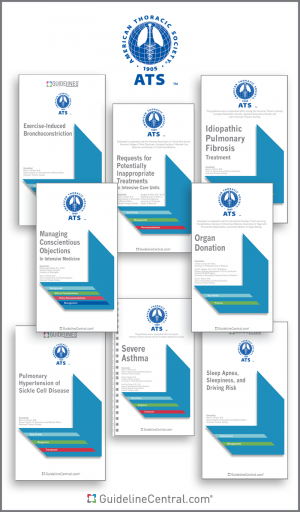
- Bronchiolitis Obliterans Syndrome Following Pediatric Hematopoietic Stem Cell Transplant
- Children With Progressive Pulmonary Hypertension Despite Optimal Therapy
- Definition, Evaluation and Treatment of Severe Asthma
- Diagnosis and Detection of Sarcoidosis
- Diagnosis and Treatment of Adults with Community-Acquired Pneumonia
- Diagnosis of Hypersensitivity Pneumonitis in Adults
- Diagnosis of Idiopathic Pulmonary Fibrosis
- Diagnosis of Primary Ciliary Dyskinesia
- Diagnosis, Risk Stratification, And Management Of Pulmonary Hypertension Of Sickle Cell Disease.
- Diagnostic Evaluation of Infants with Recurrent or Persistent Wheezing
- Drug-Susceptible Tuberculosis
- Ethical and Policy Considerations in Organ Donation after Circulatory Determination of Death
- Evaluation and Management of Obesity Hypoventilation Syndrome
- Exercise-induced Bronchoconstriction
- Fractional Exhaled Nitric Oxide for Asthma
- Home Oxygen Therapy for Adults with Chronic Lung Disease
- Home Oxygen Therapy for Children
- Hospital-acquired and Ventilator-Associated Pneumonia
- Idiopathic Pulmonary Fibrosis and Progressive Pulmonary Fibrosis in Adults
- Initiating Pharmacologic Treatment in Tobacco-Dependent Adults
- Liberation from Mechanical Ventilation in Critically Ill Adults
- Long-Term Noninvasive Ventilation in Chronic Stable Hypercapnic Chronic Obstructive Pulmonary Disease
- Management of Adult Patients with Acute Respiratory Distress Syndrome
- Management of Malignant Pleural Effusions
- Managing Conscientious Objections in Intensive Care Medicine
- Mechanical Ventilation in Adult Patients with Acute Respiratory Distress Syndrome
- Microbiological Laboratory Testing in the Diagnosis of Fungal Infections in Pulmonary and Critical Care Practice
- Noninvasive Ventilation For Acute Respiratory Failure
- Nucleic Acid-Based Testing for Non-Influenza Viral Pathogens
- Pediatric Chronic Home Invasive Ventilation
- Persistent, Post-adenotonsillectomy Obstructive Sleep Apnea in Children
- Pharmacologic Management of Chronic Obstructive Pulmonary Disease
- Post-Prematurity Respiratory Disease
- Prevention and Management of COPD Exacerbations
- Pulmonary Rehabilitation for Adults with Chronic Respiratory Disease
- Requests for Potentially Inappropriate Treatments In Intensive Care Units
- Role of Weight Management in the Treatment of Adult Obstructive Sleep Apnea
- Routine Lung Function Tests
- Severe Asthma Management
- Sleep Apnea, Sleepiness, and Driving Risk in Noncommercial Drivers
- Systemic Sclerosis-Associated Interstitial Lung Disease
- Treatment of Drug-Resistant Tuberculosis
- Treatment Of Idiopathic Pulmonary Fibrosis
- Treatment of Nontuberculous Mycobacterial Pulmonary Disease
- Tuberculosis Diagnosis Adults and Children
Related Guidelines

Children With Progressive Pulmonary Hypertension Despite Optimal Therapy

Bronchiolitis Obliterans Syndrome Following Pediatric Hematopoietic Stem Cell Transplant

Complicated Intra-abdominal Infections

Implementing Strategies to Prevent Infections in Acute Care Settings
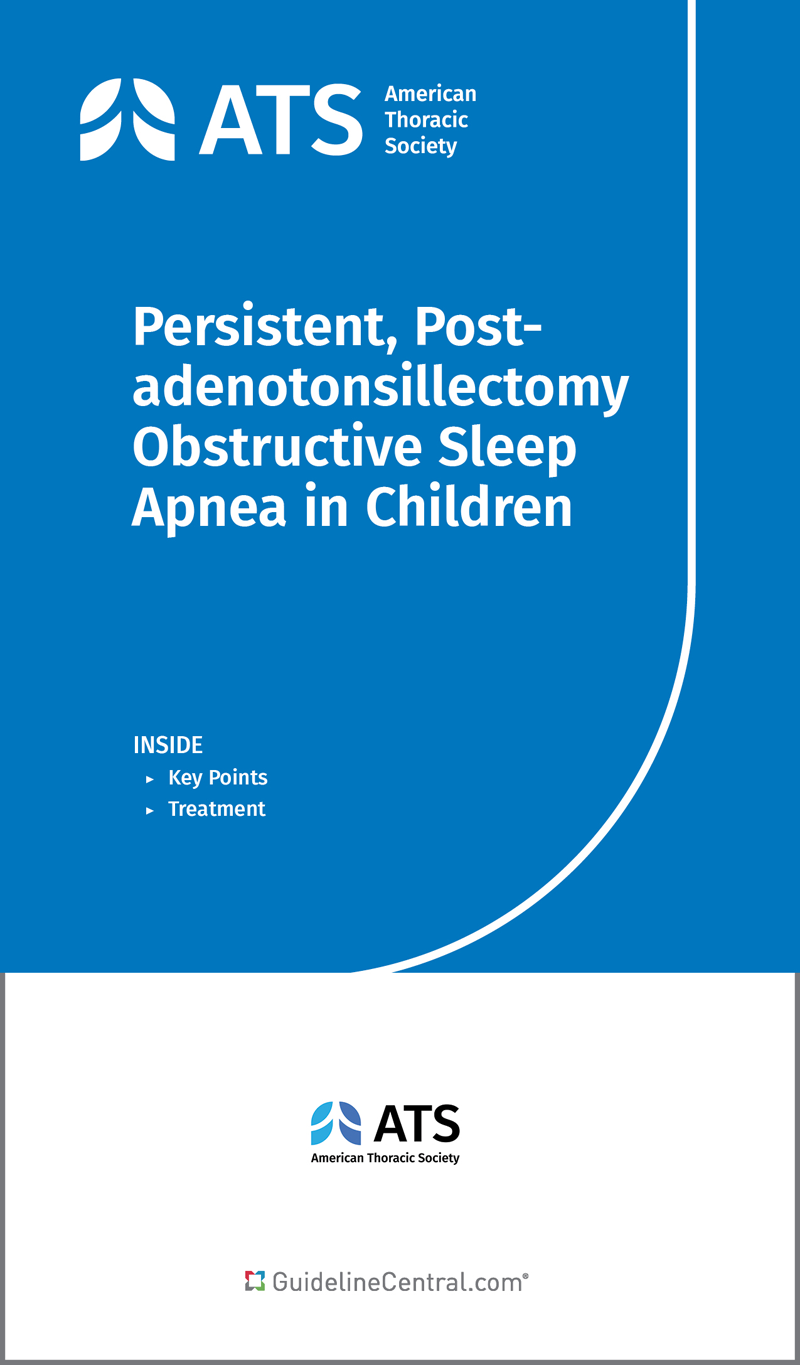
Persistent, Post-adenotonsillectomy Obstructive Sleep Apnea in Children
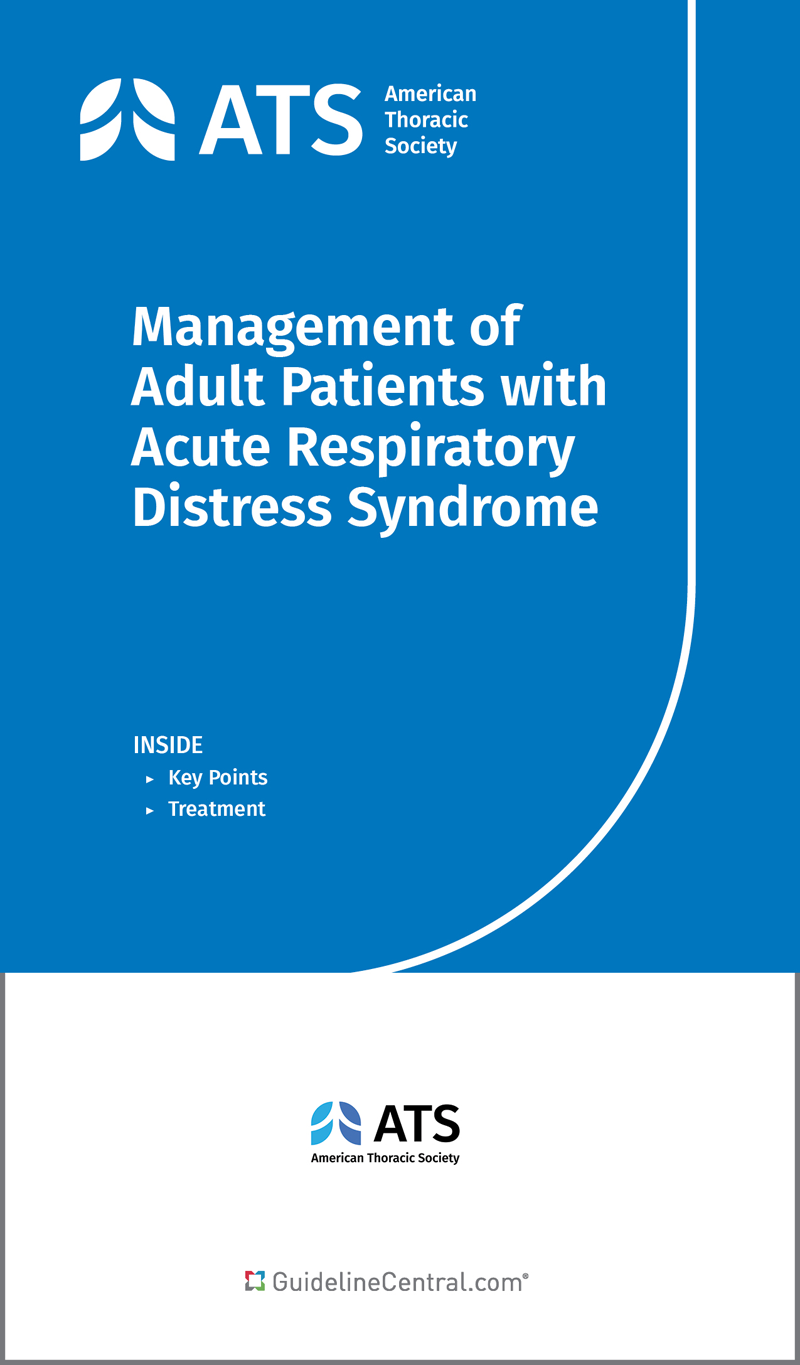
Management of Adult Patients with Acute Respiratory Distress Syndrome
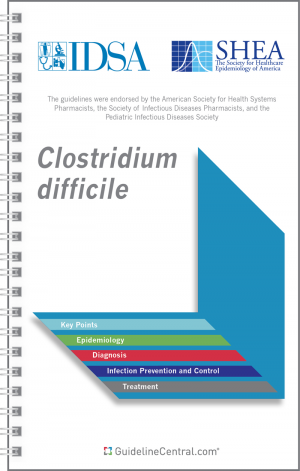
Clostridium difficile
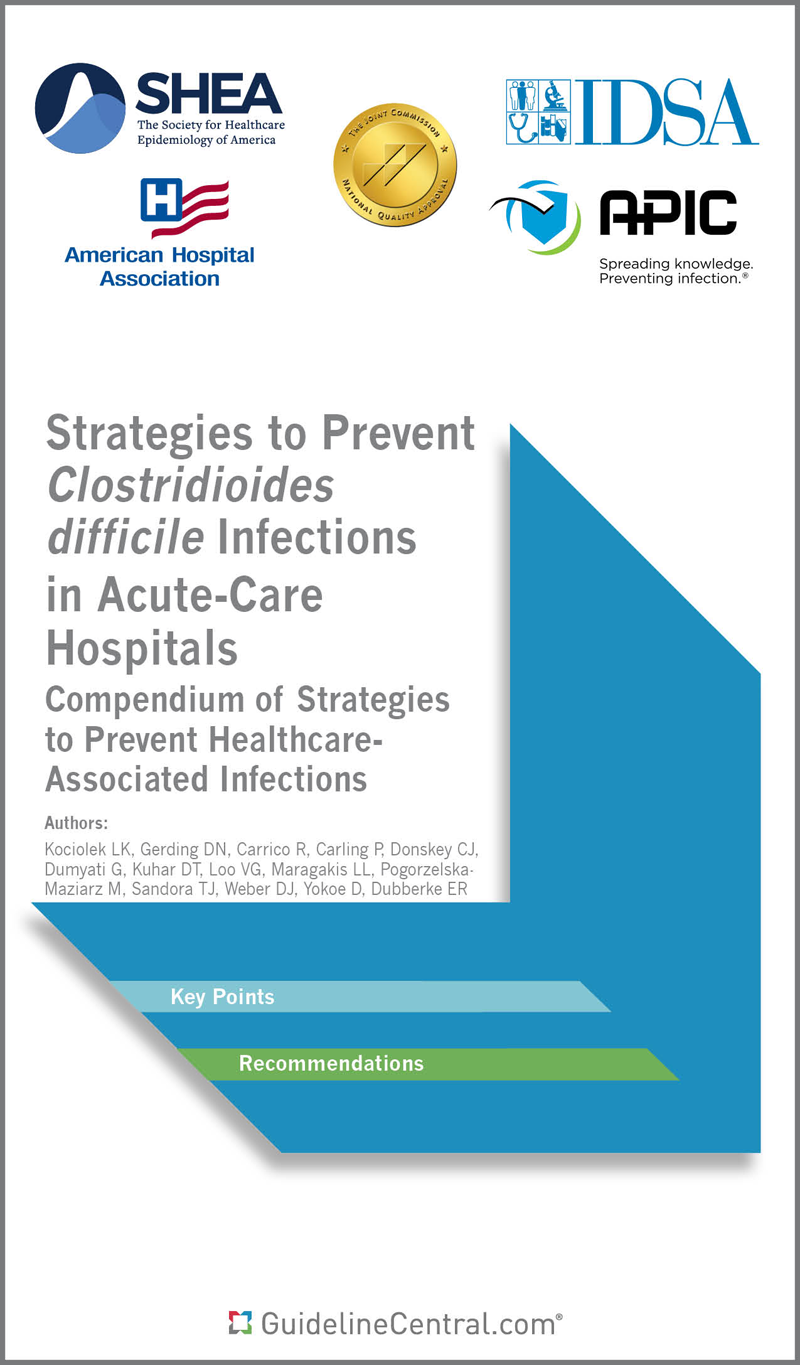
Strategies to Prevent Clostridioides difficile Infections in Acute-Care Hospitals
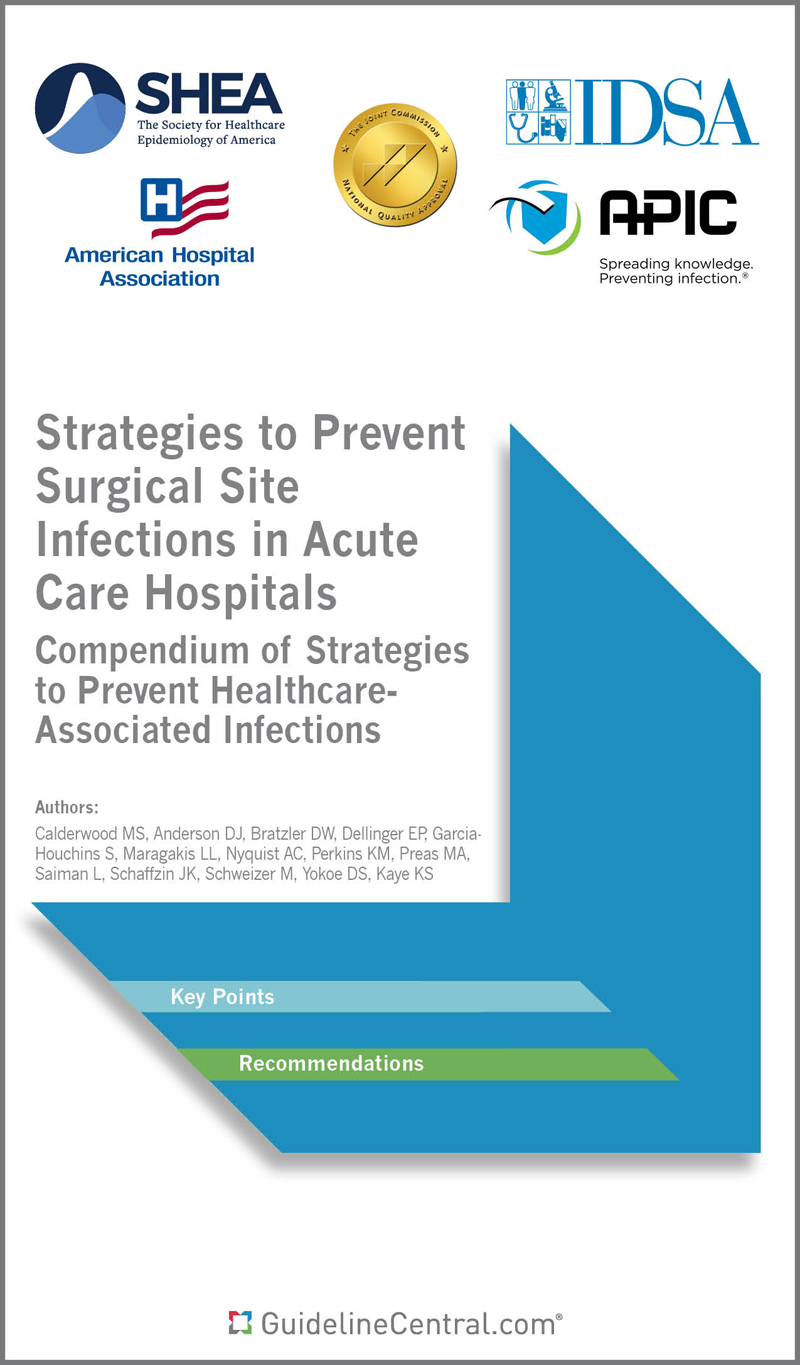
Strategies to Prevent Surgical Site Infections in Acute Care Hospitals
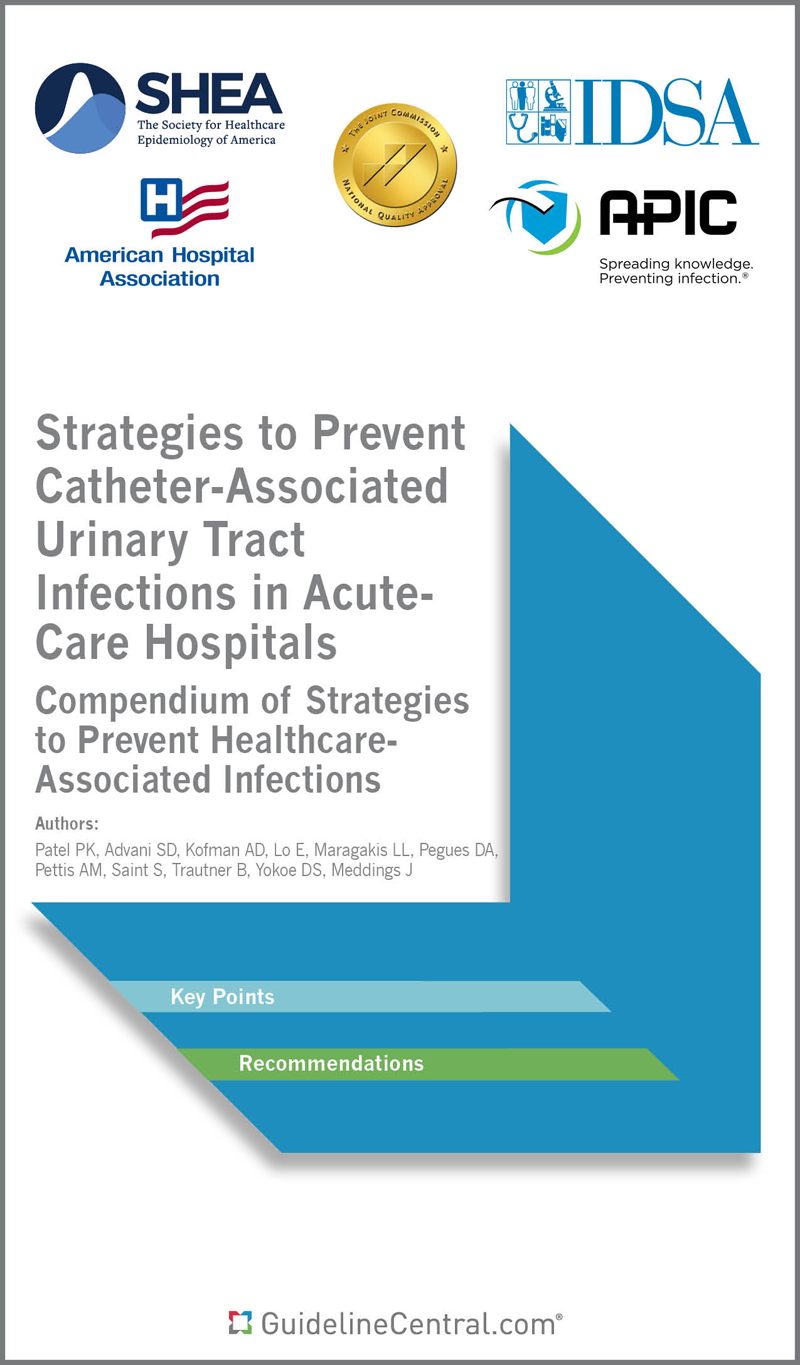
Strategies to Prevent Catheter-Associated Urinary Tract Infections in Acute-Care Hospitals
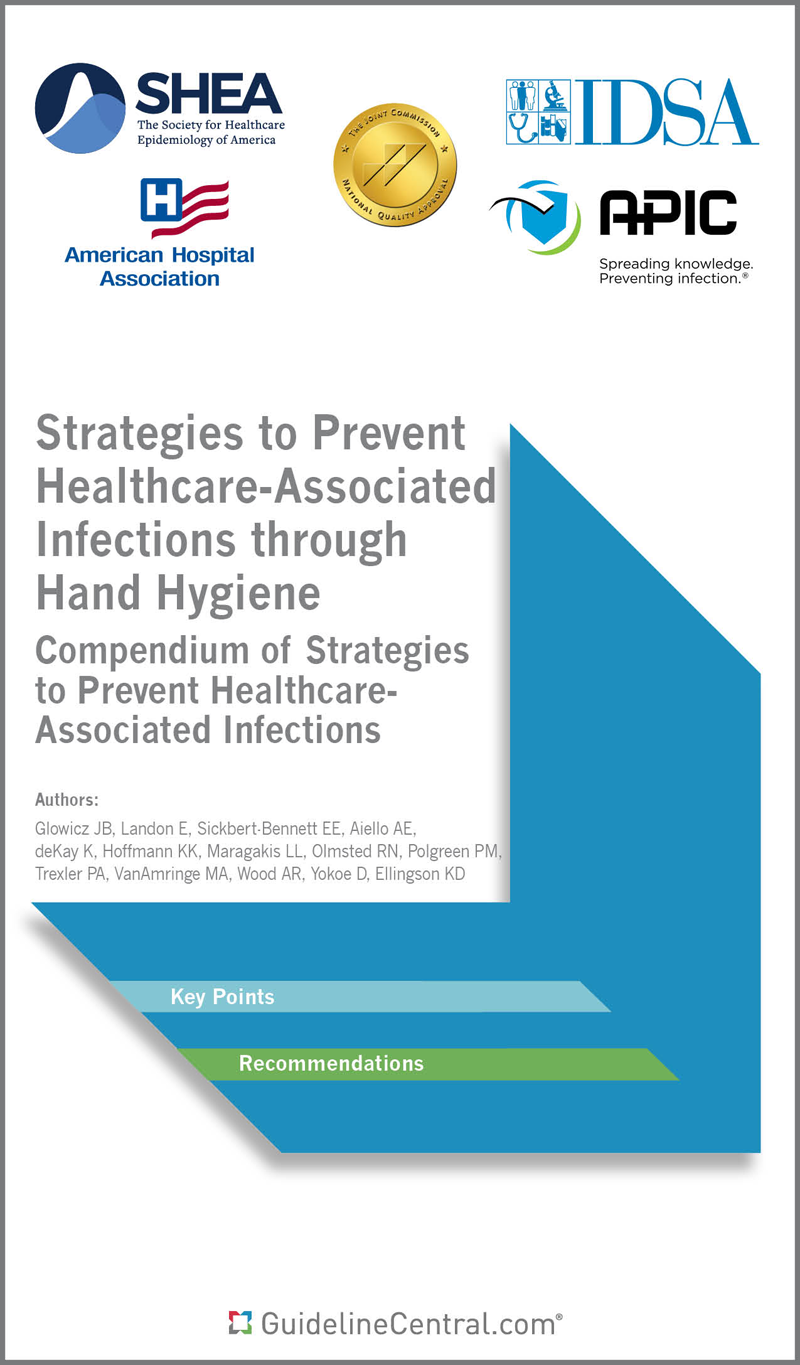
Strategies to Prevent Healthcare-Associated Infections through Hand Hygiene
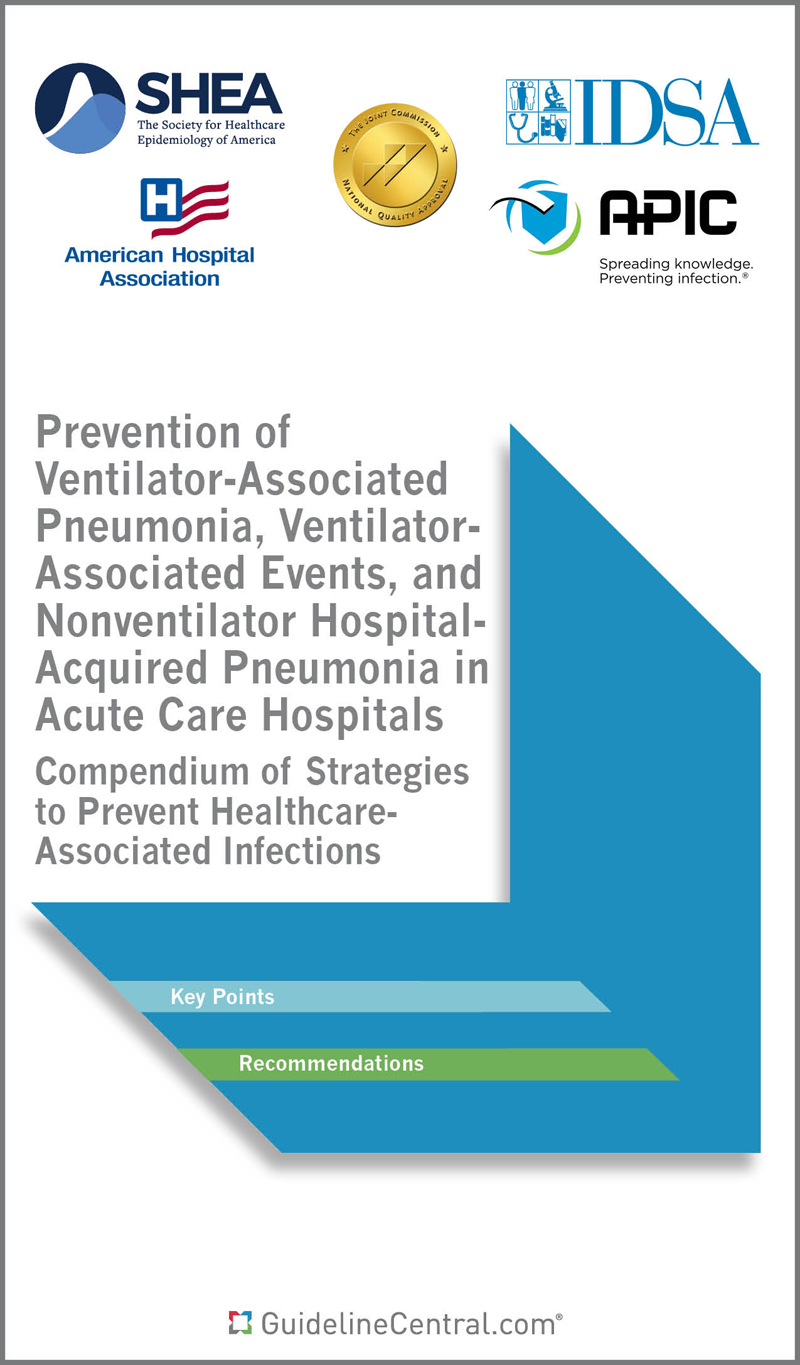
Prevention of Ventilator-Associated Pneumonia, Ventilator-Associated Events, and Nonventilator Hospital-Acquired Pneumonia in Acute Care Hospitals
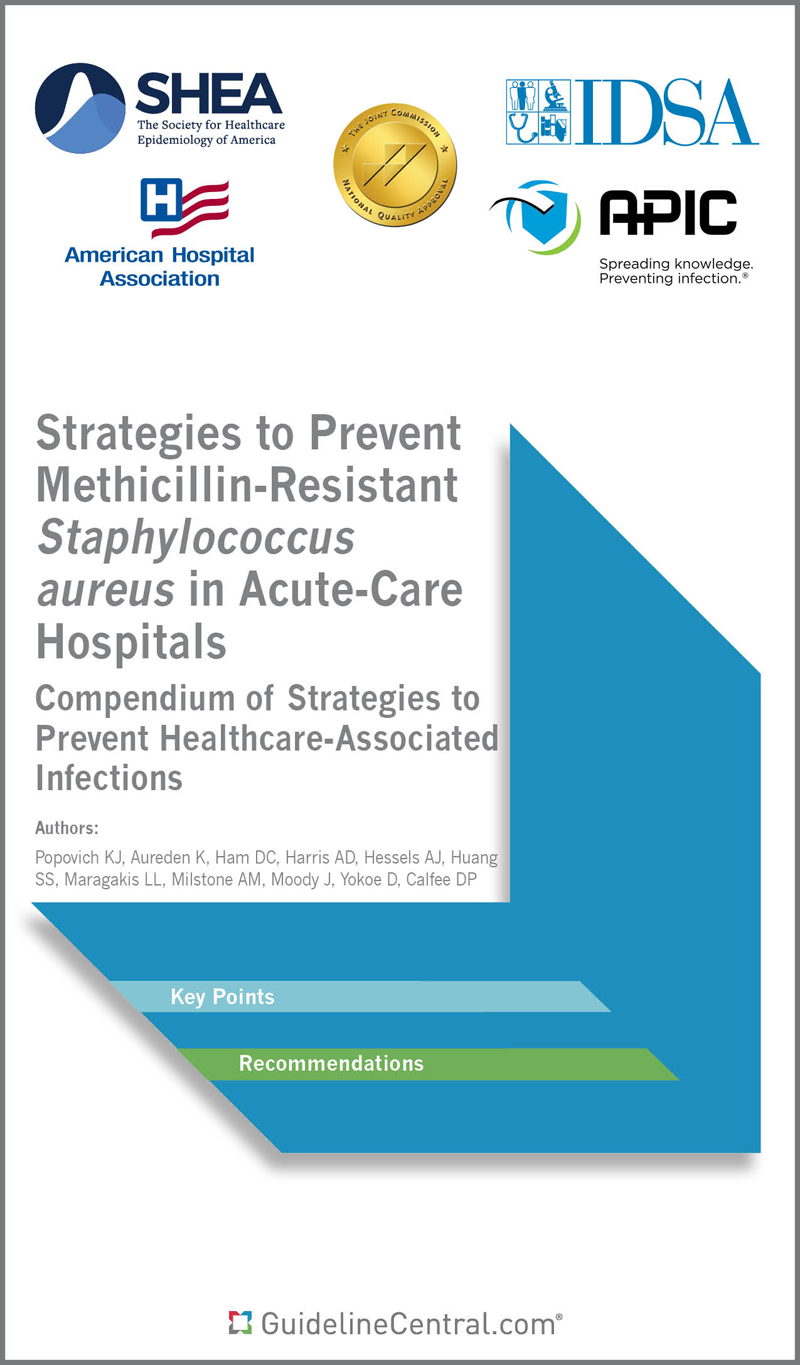
Strategies to Prevent Methicillin-Resistant Staphylococcus aureus in Acute-Care Hospitals
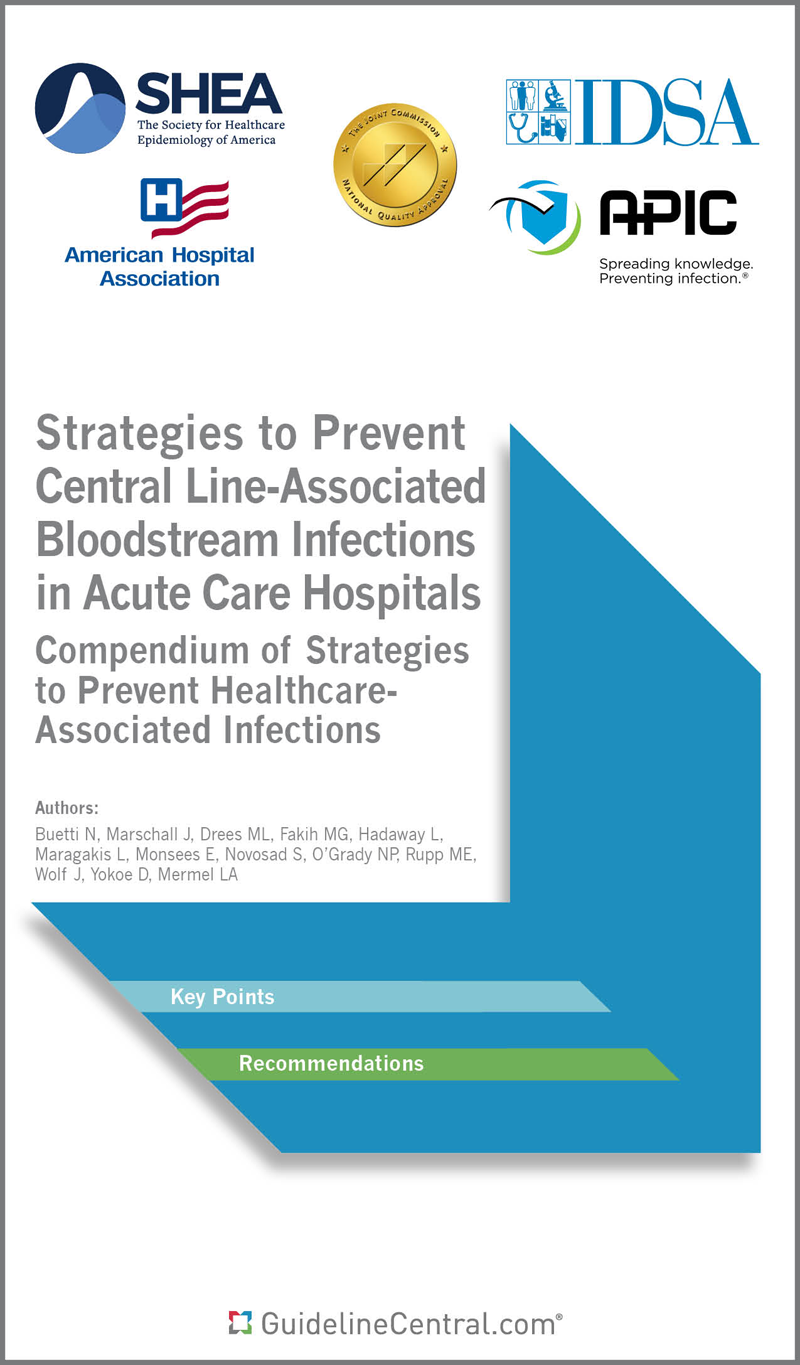
Strategies to Prevent Central Line-Associated Bloodstream Infections in Acute-Care Hospitals
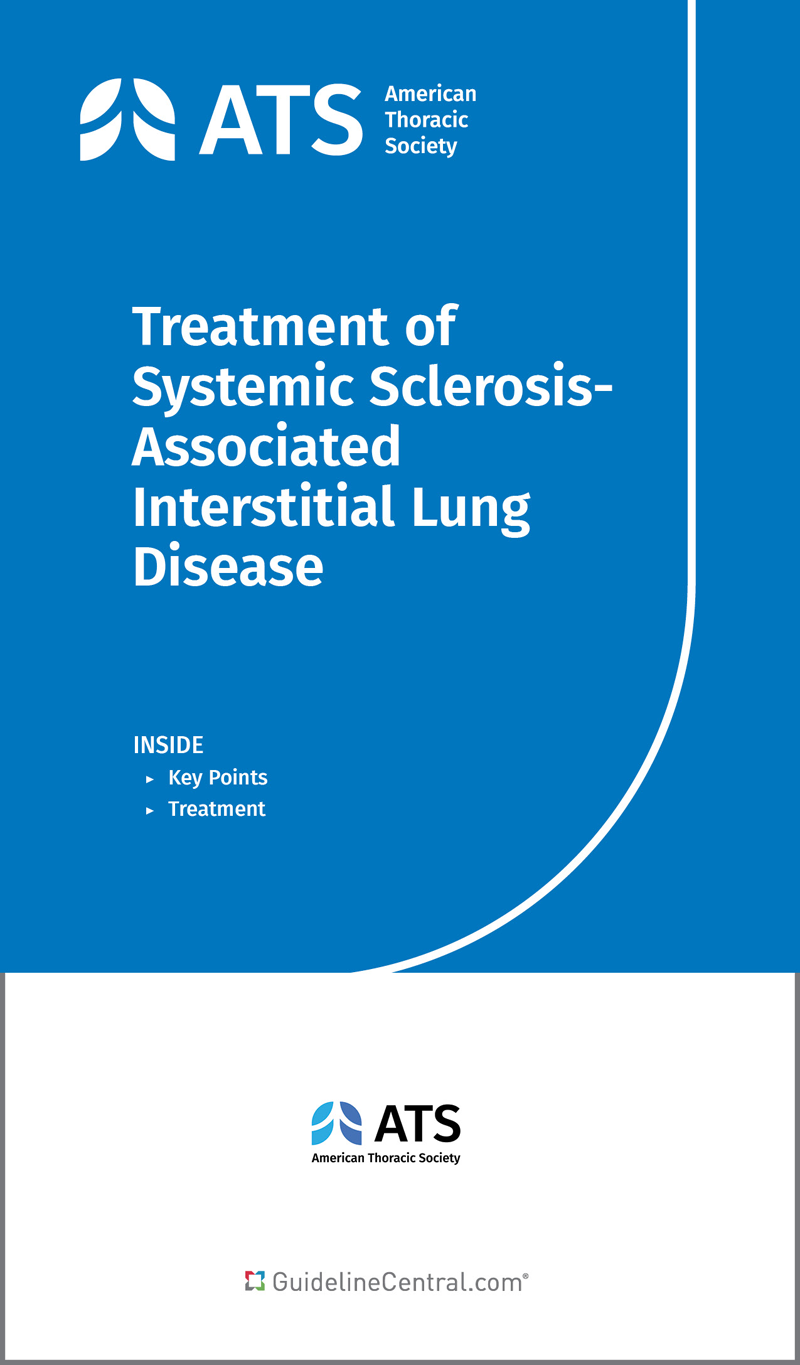
Systemic Sclerosis-Associated Interstitial Lung Disease
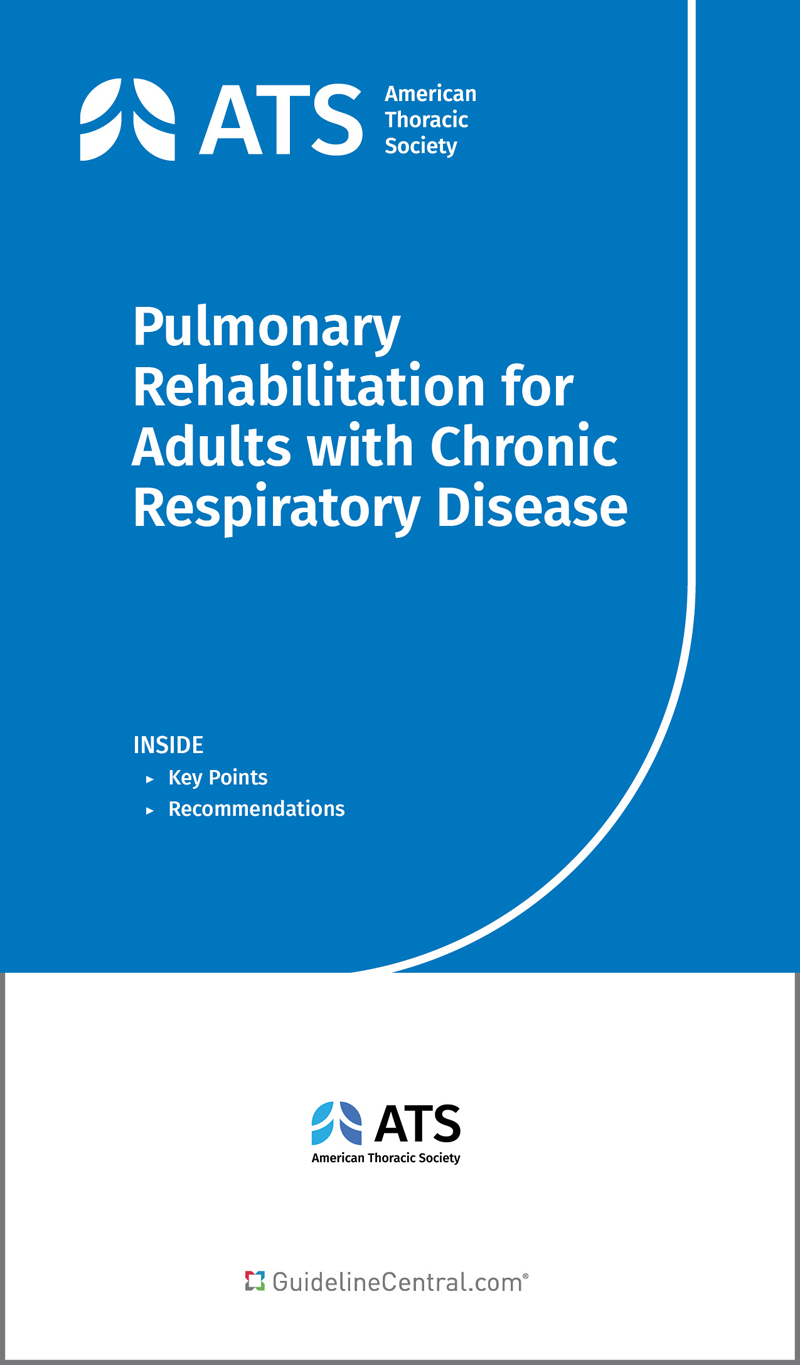
Pulmonary Rehabilitation for Adults with Chronic Respiratory Disease
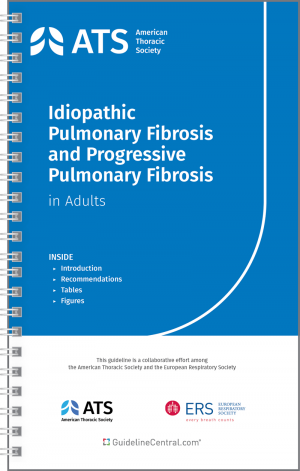
Idiopathic Pulmonary Fibrosis and Progressive Pulmonary Fibrosis in Adults
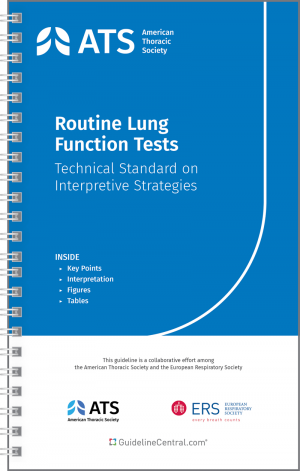
Routine Lung Function Tests
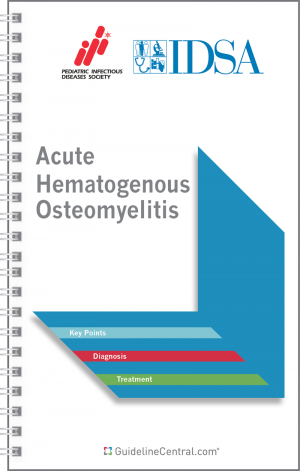
Acute Hematogenous Osteomyelitis
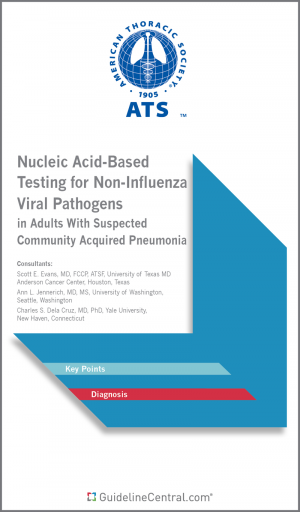
Nucleic Acid-Based Testing for Non-Influenza Viral Pathogens
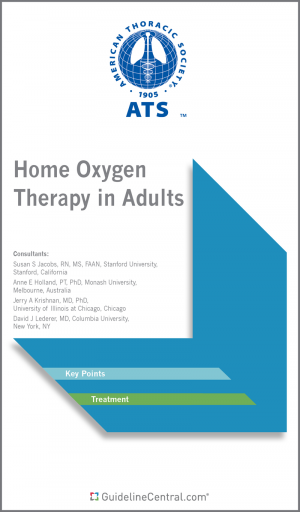
Home Oxygen Therapy for Adults with Chronic Lung Disease
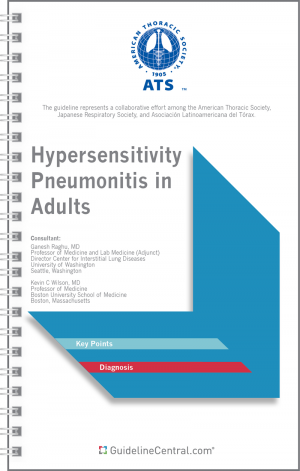
Diagnosis of Hypersensitivity Pneumonitis in Adults
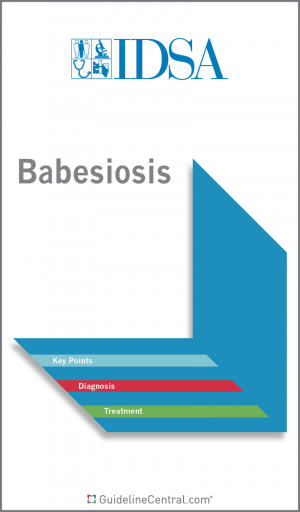
Guideline on Diagnosis and Management of Babesiosis
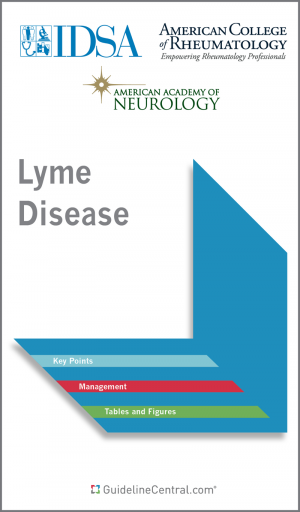
Prevention, Diagnosis and Treatment of Lyme Disease
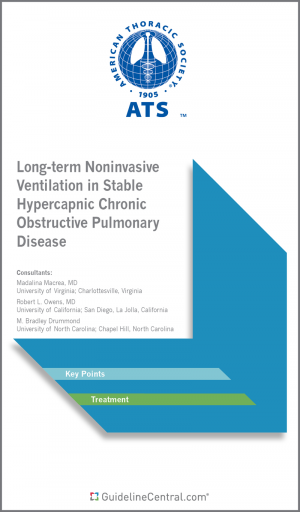
Long-Term Noninvasive Ventilation in Chronic Stable Hypercapnic Chronic Obstructive Pulmonary Disease
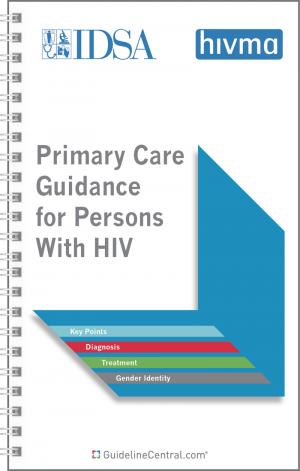
Primary Care Guidance for Persons with HIV
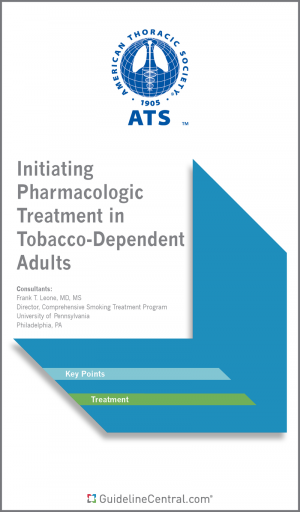
Initiating Pharmacologic Treatment in Tobacco-Dependent Adults
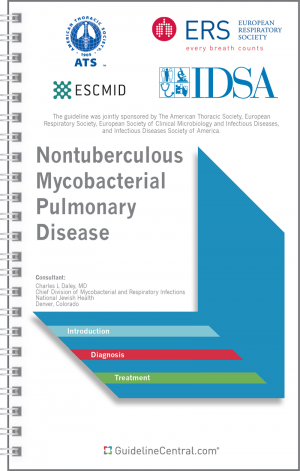
Treatment of Nontuberculous Mycobacterial Pulmonary Disease
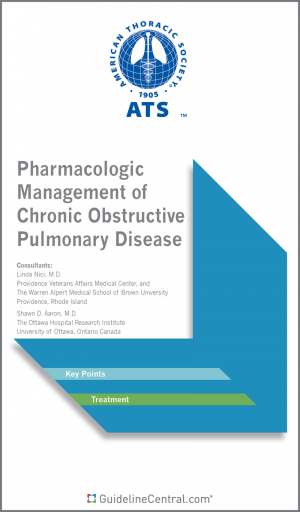
Pharmacologic Management of Chronic Obstructive Pulmonary Disease
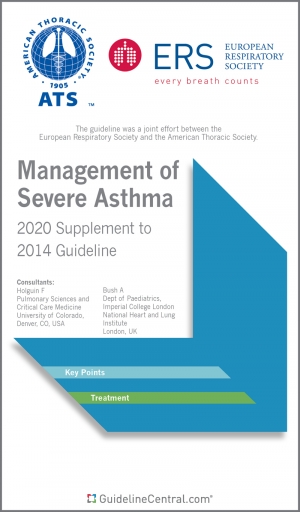
Severe Asthma Management
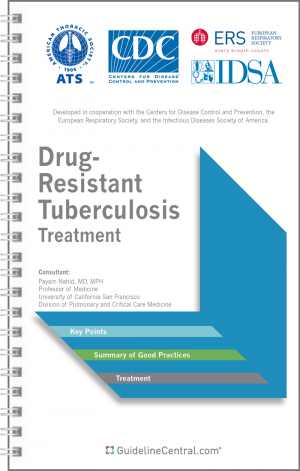
Treatment of Drug-Resistant Tuberculosis
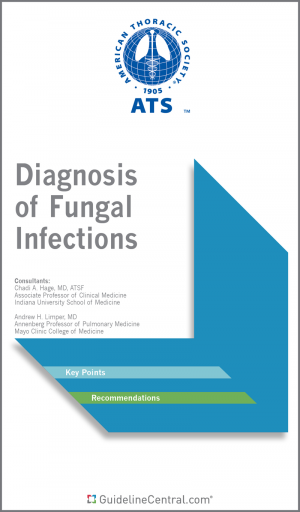
Microbiological Laboratory Testing in the Diagnosis of Fungal Infections in Pulmonary and Critical Care Practice
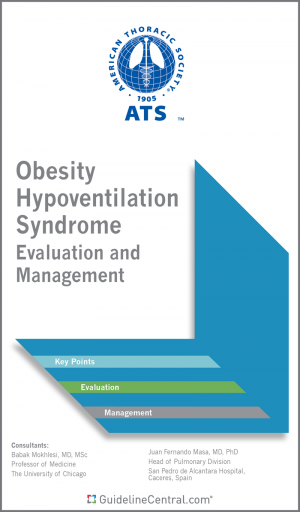
Evaluation and Management of Obesity Hypoventilation Syndrome
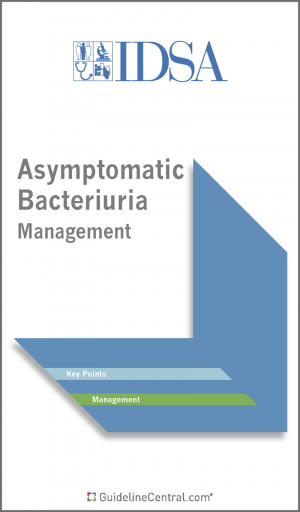
Asymptomatic Bacteriuria Management
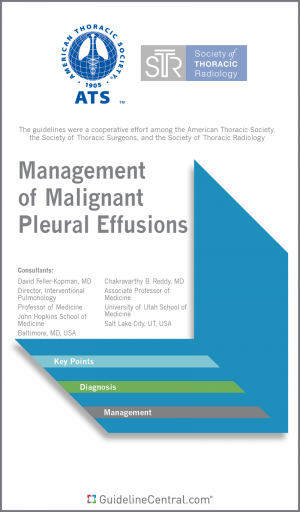
Management of Malignant Pleural Effusions
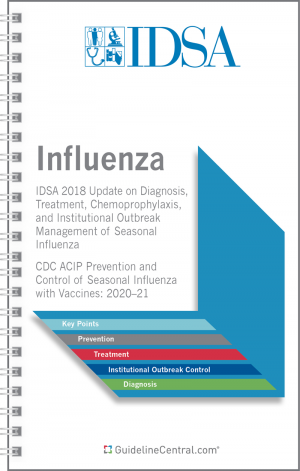
Influenza Update for the 2020 - 2021 Flu Season
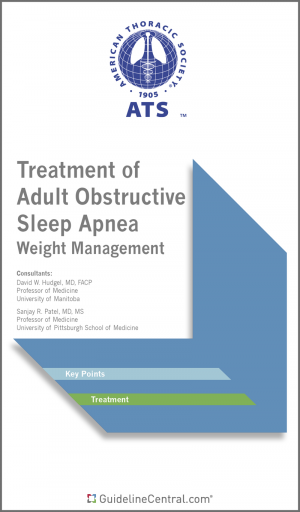
Role of Weight Management in the Treatment of Adult Obstructive Sleep Apnea
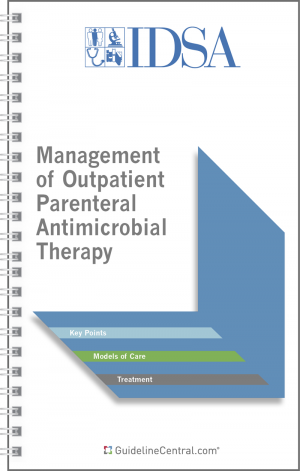
Management of Outpatient Parenteral Antimicrobial Therapy
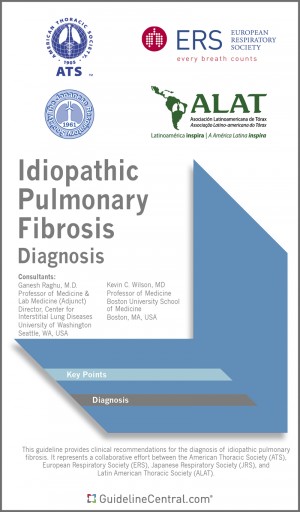
Diagnosis of Idiopathic Pulmonary Fibrosis
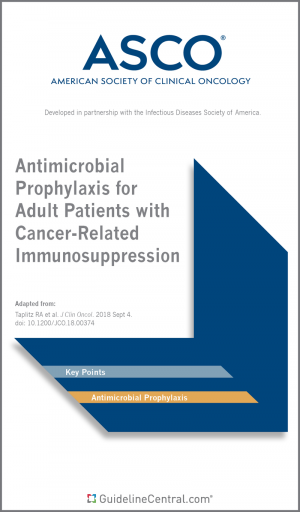
Antimicrobial Prophylaxis for Adult Patients With Cancer-Related Immunosuppression
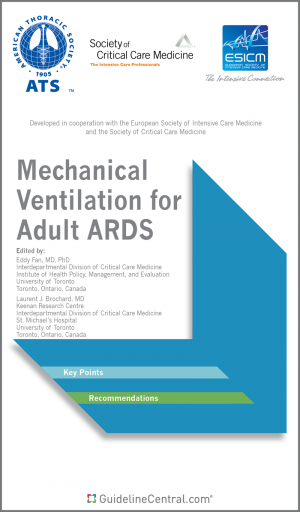
Mechanical Ventilation in Adult Patients with Acute Respiratory Distress Syndrome
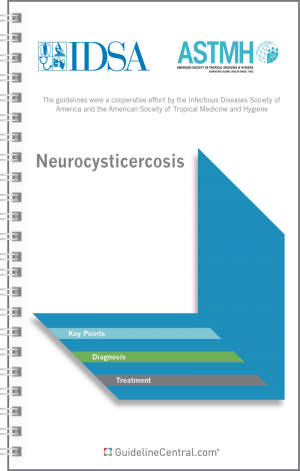
Neurocysticercosis
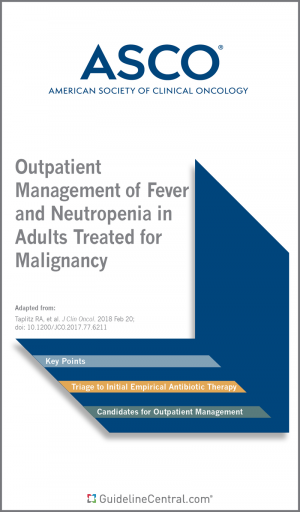
Outpatient Management of Fever and Neutropenia in Adults Treated for Malignancy
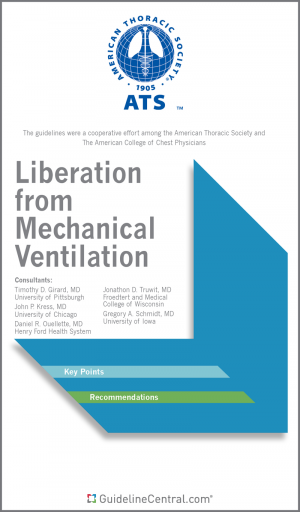
Liberation from Mechanical Ventilation in Critically Ill Adults
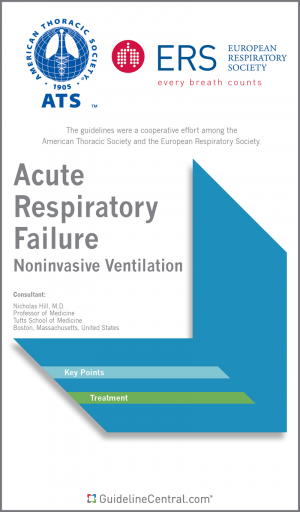
Noninvasive Ventilation For Acute Respiratory Failure
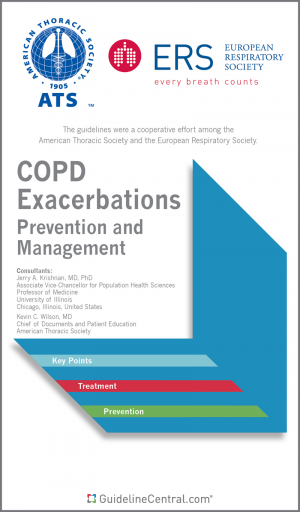
Prevention and Management of COPD Exacerbations
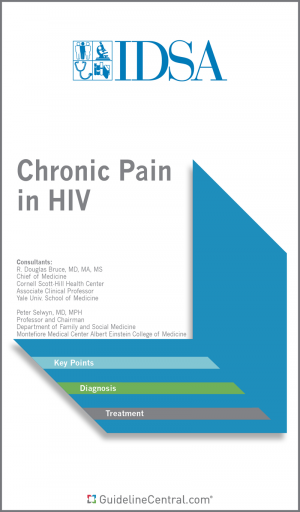
Chronic Pain in HIV
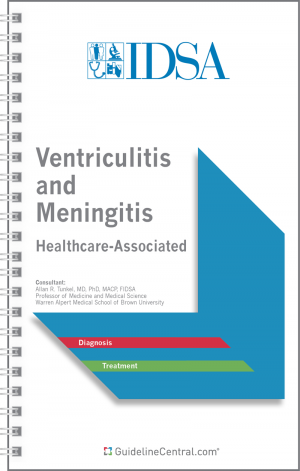
Ventriculitis and Meningitis Healthcare-Associated
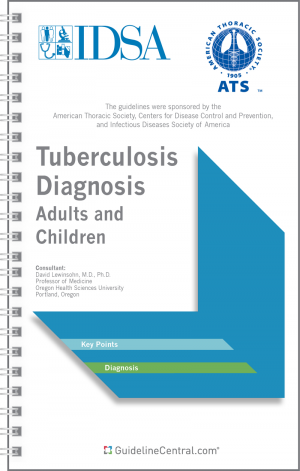
Tuberculosis Diagnosis Adults and Children
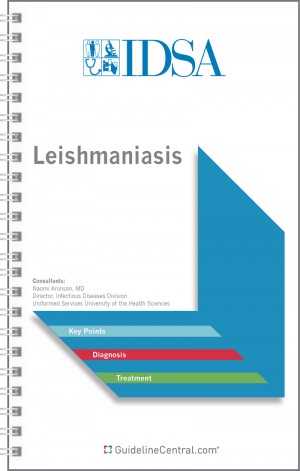
Leishmaniasis
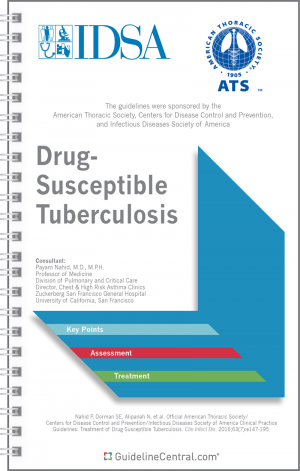
Drug-Susceptible Tuberculosis
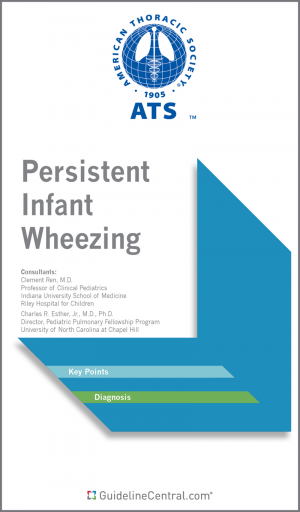
Diagnostic Evaluation of Infants with Recurrent or Persistent Wheezing

Hospital-acquired and Ventilator-Associated Pneumonia
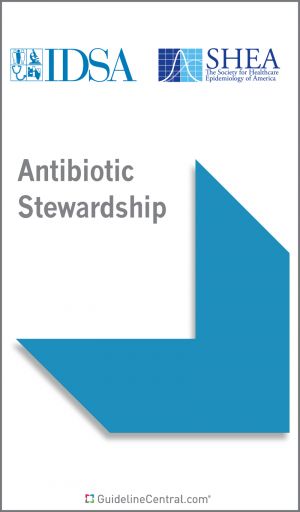
Antibiotic Stewardship
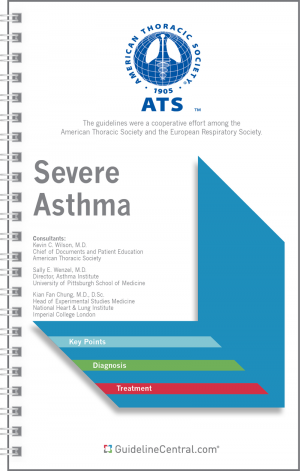
Definition, Evaluation and Treatment of Severe Asthma
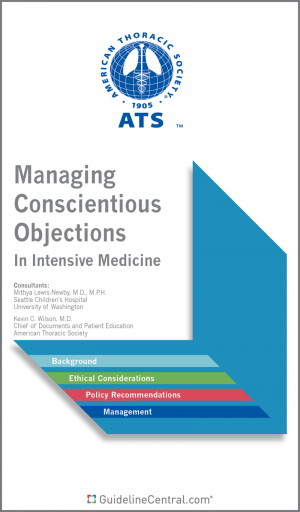
Managing Conscientious Objections in Intensive Care Medicine
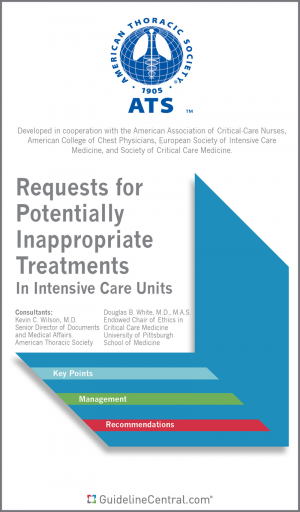
Requests for Potentially Inappropriate Treatments In Intensive Care Units
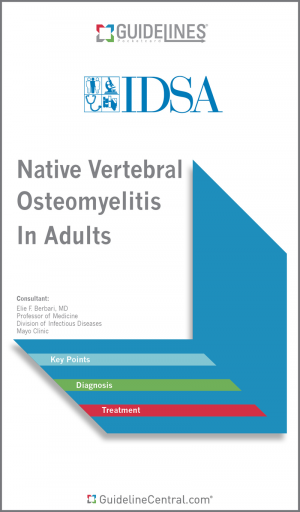
Native Vertebral Osteomyelitis in Adults
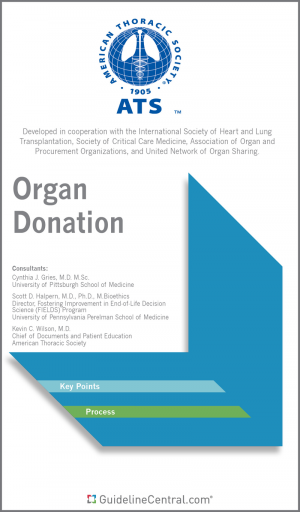
Ethical and Policy Considerations in Organ Donation after Circulatory Determination of Death
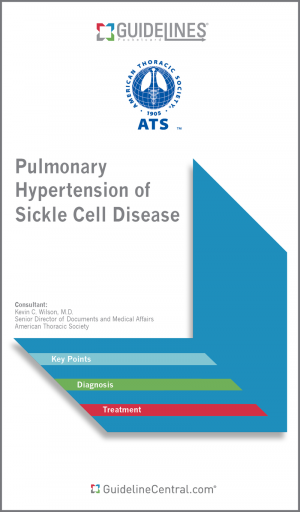
Diagnosis, Risk Stratification, And Management Of Pulmonary Hypertension Of Sickle Cell Disease.
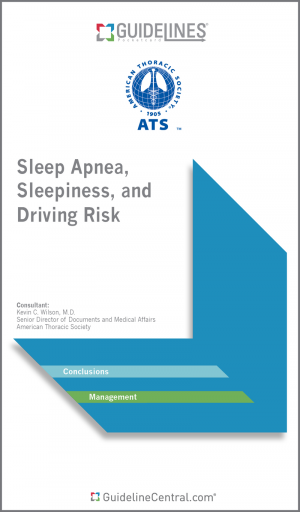
Sleep Apnea, Sleepiness, and Driving Risk in Noncommercial Drivers
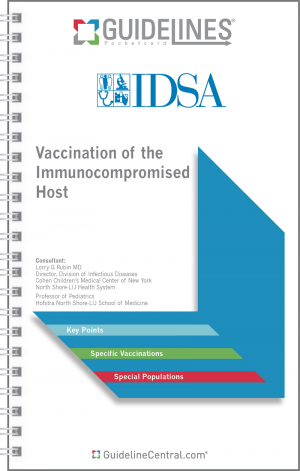
Vaccination of the Immunocompromised Host
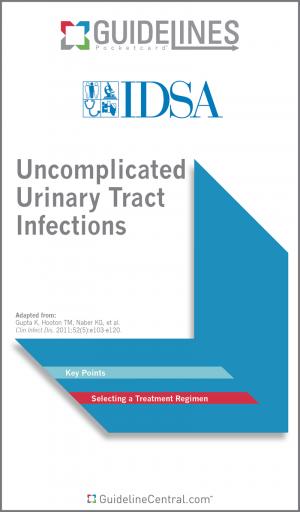
Treatment of Acute Uncomplicated Cystitis and Pyelonephritis in Women
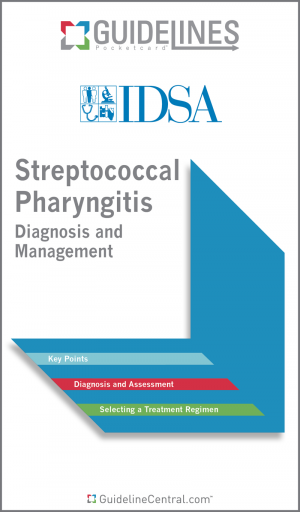
Streptococcal Pharyngitis Diagnosis and Management
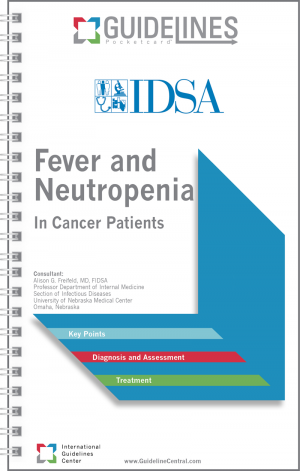
Fever and Neutropenia in Cancer Patients
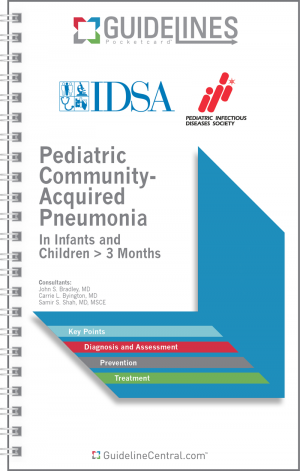
Pediatric Community-Acquired Pneumonia
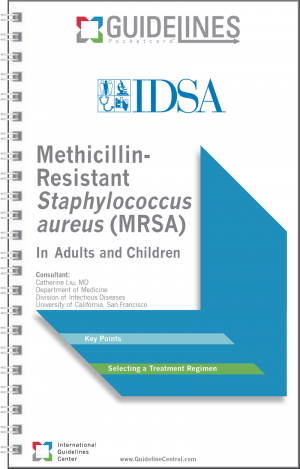
Methicillin-Resistant Staphylococcus aureus (MRSA)
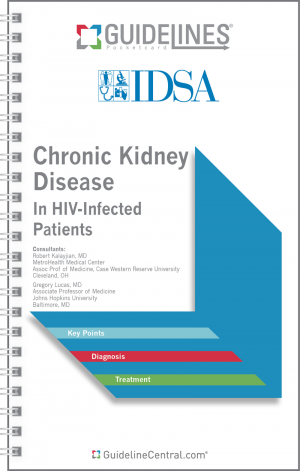
Chronic Kidney Disease in HIV-Infected Patients
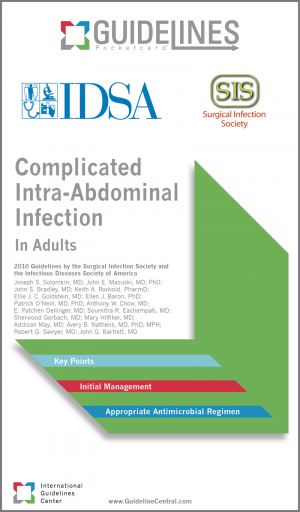
Complicated Intra-abdominal Infection in Adults
